
I released a game on eight platforms and didn’t die in the process. Isn’t that all we can ask for?

I released a game on eight platforms and didn’t die in the process. Isn’t that all we can ask for?
You’d think RSS feeds would be simple, but they are anything but. One of the most frustrating things with online readers is they are often cached, so it takes hours to tell if your feed is being digested or not. Feedly stop reading my RSS and I don’t know why.
Part of quitting Twitter necessitate rebuilding Grumpy Gamer. The Thimbleweed Park dev blog was based on the Grumpy Gamer blog code, but I’d made a lot of improvements that I loathed losing, but even the Thimbleweed Park blog code was starting to feel old and worn.
It was time to start over, and by start over, I mean completely start over. I crave change. When I find myself in a rut, or lacking motivation, I strive to change as much as I can to spark my imagination.
Writing a new blogging platform from the ground up (again) was what I needed. It’s not rocket science, which is exactly what I needed.
My first decision was what to do about the database. The old-old Grumpy Gamer blog used MySQL, but when I rebuilt that into the old Grumpy Gamer blog I became fascinated with MongoDB. I’d worked a lot in a structured database, and the unstructured nature of MongoDB was enticing. Need a new data column? Just write to one.
MySQL was feeling very heavy, MongoDB felt light and fast.
Three years later, I am back to MySQL and I can arbute that to two things:
The lack of a web based tool to quickly manage and query the DB. There are web based tools, but none of them (that I found) can display your data in anything that resembles a table to quick scanning and editing. Any time I needed to “massage” the DB outside the blogging admin tools, I dreaded it.
The MongoDB query language is a mess. You’re basically constructing JSON/Javascript queries and it just reeks of being wedged into that format. SQL might not be much better, but at least I know it well.
After a few years with MongoDB, I’m also realizing that I was incorrect in one of my initial assumptions: MongoDB is no faster than MongoDB and the footprint on the server is about the same.
I’m sure MongoDB is better for certain tasks, and MySQL for others, but it largely comes down to what you know and what your comfortable with. For me, that was SQL.
P.S. I don’t like that MySQL is owned by Oracle, but I’m not sure I want to make the jump into PostgreSQL. Maybe the next time I’m feeling bored and unmotivated.
I’m still waiting for Animal Crossing to come to the Switch.

Clayton and I did this back in Dec of 2004. Interesting how much hasn’t changed. I might have more “male” spouses now, something about loot crates, and maybe change the last verse to be more “indie”, but it’s shockingly accurate 13 years later.
A poem by Gilbert and Kauzlaric
On the twelfth day of crunch time, My project gave to me…

Twelve cents in royalties,

Eleven kiss-ass previews,

Ten nerdy testers,

Nine patent lawsuits,

Eight unplanned for features,

Seven frames a second,

Six angry spouses,

Five focus groups!

Four unstable hacks,

Three days without sleep,

Two surly artists,

and a crappy publishing deal.
You can find me on Mastodon and follow me there, if you want. It’s 100% optional (at least until the GOP 2018 tax bill is in effect).
I’ll give it a few weeks, but I’m not sure it really solves my issues with social media. I guess it depends on how many people use it. Not enough and it’s boring and pointless. Too many and it’s Twitter all over again.
I do think Maston has a huge “on boarding” problem. It’s very confusing and the idea of separate instances just makes it worse. My name (grumpygamer) is only unique on my server, anyone else can create that username on any number of servers and there is no way for you to know.
I think this is a recipe for disaster. It would have been nice if they had created some kind of repository for usernames. I know this goes against the “distributed” nature of the service, but to all but the technically elite, it’s confusing. Mastodon even recommends using keybase to verify your identity, that’s a nice idea, but why isn’t it built into the service? How many people even know what keybase is?
How do I find people? Is there a central place to search for users? If there is, I can’t (easily) find it. I wasn’t even sure the url for link to my account, I just guessed. This should be on my account page. Discovery is going to be a issues.
Today is the winter solstice, my favorite day of the year. It will be the darkest day of the year and that’s OK by me. I’m a winter person, not a summer person. I like the cold and I like the dark. It feels cozy. The summers in Seattle can be light until 9:30pm, in the winters, it’s getting dark at 4:30pm. I also like Christmas, not for the joy of giving, peace on Earth and all that rubbish, but because of Christmas lights and they work best at night. I wish it was night all the time and everyone had Christmas lights up year round. But that’s just me. You’re free to be wrong.
Went on vacation a few weeks ago. Everyone loves vacation photos, so I thought I’d share mine…
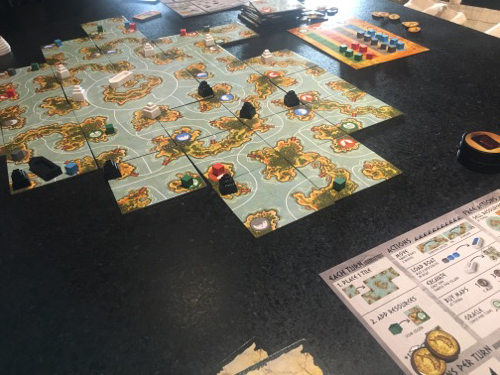
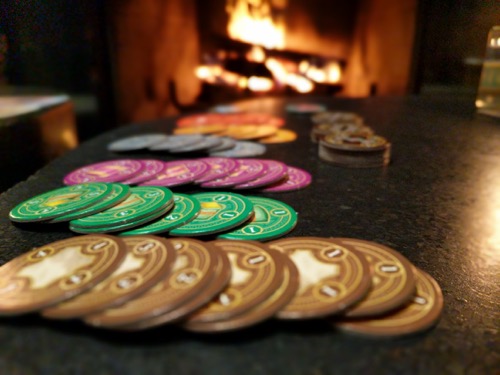

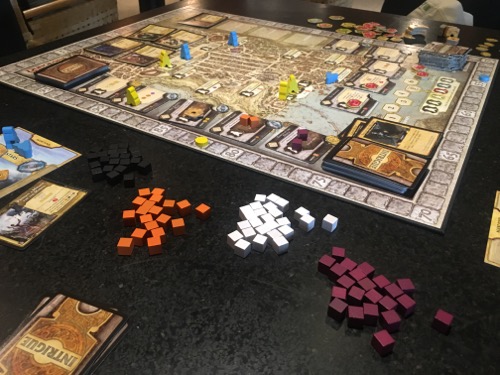
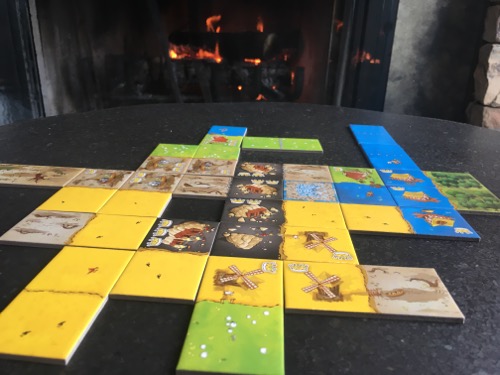
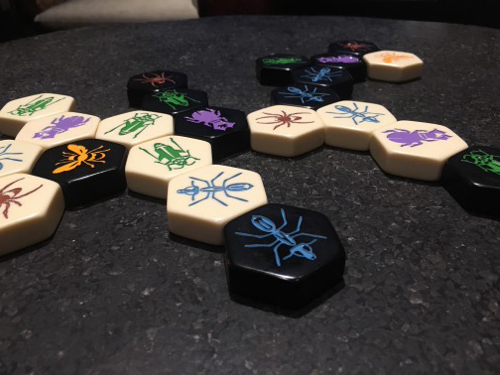
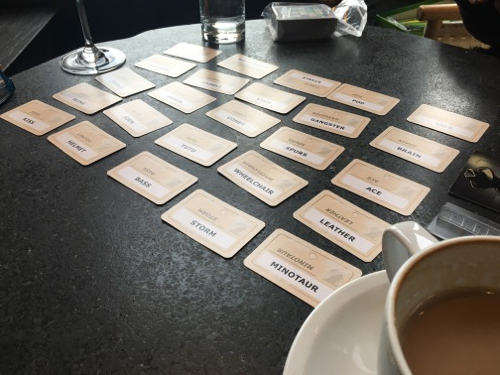


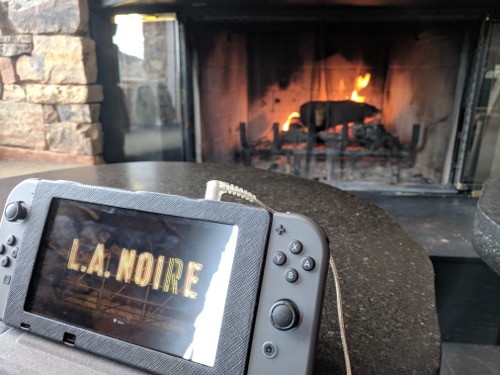
NOTE: This was 2 blug revisions ago…
Welcome to the all new Grumpy Gamer Blog!
It has all of the content from the old blog minus the stupid stuff. I removed a lot of the old posts teasing the lead up to my new games like The Cave, Scurvy and, of course, Thimbleweed Park. They were just noise.
Now that Thimbleweed Park is done and I won’t be blogging there as much, it felt like I needed a new outlet to gripe and complain.
Also, for the most part, I am leaving Twitter.
It’s a hostile crap-filled dumpster-fire of shit. I stopping checking and posting on Twitter a few weeks ago while I was on vacation and I realized how much better my life was. When I got back, I had no real desire to go back, so I haven’t.
And no one has noticed.
Twitter is like an F2P game, they both tap into a horrible part of our lizard brain. F2P games trigger dopamine associated with gambling and the become an addition. You aren’t playing them because you enjoy the game, you’re playing them because you’re addicted. You are just convincing yourself you’re having (true) fun,
Twitter (and social media in general) is the same. You’re addicted to likes, followers, and mentions. People have found the best way to get the proceeding is to post angry shit and enrage people. As we are seeing, this is not good for us as people, or us as a society. I’m tired of it and I’m not going to be a part of it anymore, at least until it (or we) change.
I do worry about staying connected to what is happening in the world of making a game. It seems like Twitter is a good place to do that, but it’s also filled with hype and egos and bitching and probably not the “best way” to stay in touch.
The final straw for quitting Twitter was when I got back from vacation, there was a Twitter thread about Monkey Island being ranking 172 of the best games ever by some big website. My mentioned were filled with people dumping shit on the website and expecting me to jump in. Look… I don’t care. It is of no importance to me where Monkey Island falls on some list. Lists are made by people and people have different opinions.
It just struck me how much pointless anger there was, and worse, they expected me to join in.
I. Just. Don’t. Care. I’m done.
If you are on Twitter and want to know what’s up with Thimbleweed Park (including the new Ransome unbeeped DLC), please follow @thimbleweedpark.
There are no comments on the new Grumpy Gamer blog. I haven’t decided if I’m going to add them or not.
Update: 1) There are comments on the Grumpy Gamer Blog now. 2) New blog posts will be echoed to Twitter, but I won’t be logging on, so I won’t see your replies or likes.